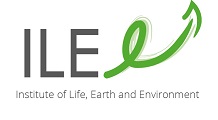Sustainable Plant and Animal Production
Adelante 2 - Triangular cooperation EU-LAC: Contribution to the development of herbal medicine - P. Kestemont
This Triangular Cooperation Initiative aims to harness the knowledge of the provider entities of the Partnership in the scientific research of natural products and crop production in controlled environments, in order to create a model for the development of herbal medicine. The University of Antwerp - UA (Belgium) and the University of Namur - UNamur (Belgium) have extensive experience in scientific research on natural products for pharmacological use, having developed innovative techniques for the analysis and characterisation of medicinal plants and other biological products for the development of medicines of natural origin. (2021-2024) More information
IRP (International Research Partnership) with University of Lorraine - P. Kestemont
The aim of the project is to understand the effects of domestication on the reproduction and welfare of new species in aquaculture. The chosen model is the Zebra Fish. The fish will arrive from Bangladesh and will be in the wild. But we don't eat Zebra Fish, do we? So, why was this model chosen? First of all, because their genome is well known and a lot of bibliographic resources are available. Then, it is a species which reproduces quickly (a few months are enough to obtain a new generation). This enables to quickly analyze its resistance to stress and its reproduction in captivity. It should also be noted that the study plans to let the fish develop without making any selection, as is generally the case in farms. In this way, we can see whether domestication syndromes appear naturally, including phenotypic changes (appearance, morphology, levels of the stress hormone called cortisol, etc.). (2021-2025) More information
BACTOFIGHT - P. Van Cutsem & Fytofend
Development of a biocontrol product against bacterial plant diseases. (2020-2022)

PATHOFLAX - Développement de stratégies vertes de contrôle des pathogènes du lin - P. Van Cutsem, G. Van Aubel
 The project aims at developing an integrated control against pathogens of common flax, more particularly against Verticillium dahliae, the fungus causing verticillium wilt. Flax cultivation, especially that of fibre flax, recently experiences massive revival in our regions. Biocomposite materials with long cellulose fibres provide flexibility, lightness and strength to an amazing diversity of marketable objects – see here for examples provided by one of the project partners: Terre de lin.
The project aims at developing an integrated control against pathogens of common flax, more particularly against Verticillium dahliae, the fungus causing verticillium wilt. Flax cultivation, especially that of fibre flax, recently experiences massive revival in our regions. Biocomposite materials with long cellulose fibres provide flexibility, lightness and strength to an amazing diversity of marketable objects – see here for examples provided by one of the project partners: Terre de lin.However, verticillium wilt makes fibres brittle and fragile and no effective chemical control exists against this fungus. It produces micro-sclerotia, structures that can survive in the soil for many years. Together with the spin off FytoFend, URBV will investigate the effectiveness of the stimulation of plant defences (elicitors) to control the development of this disease.(2019-2022)
Evaluation des performances d'un sel de phosphate d'ammonium dans le domaine de la nutrition aquacole - P. Kestemont & R. Mandiki
Evaluation of an ammonium phosphate salt in the context of aquaculture nutrition. (2017-2018)
SMARTBOX: SMARTBOX - P. Van Cutsem
 Continued development of an intelligent container to standardise and optimise abiotic conditions for plant production in pharmaceutical industry. (2016-2018)
Continued development of an intelligent container to standardise and optimise abiotic conditions for plant production in pharmaceutical industry. (2016-2018)The melatonin hormone in fish, a crucial link between light environment, stress and immunity - P. Kestemont & S. Baekelandt

 Fish species are adapted to their natural environment and show light preferences even when raised in aquaculture. The hormone melatonin regulates many biological pathways such as sleep-wake timing or seasonal reproduction. Investigating melatonin under stressful light conditions will help to understand the mechanisms involved in its potential immuno-modulatory role. (2016-2020) Read more
Fish species are adapted to their natural environment and show light preferences even when raised in aquaculture. The hormone melatonin regulates many biological pathways such as sleep-wake timing or seasonal reproduction. Investigating melatonin under stressful light conditions will help to understand the mechanisms involved in its potential immuno-modulatory role. (2016-2020) Read moreELISCREEN - P. Van Cutsem
 Select the plants to improve efficiency of bio-pesticides. (2016-2017) Read more
Select the plants to improve efficiency of bio-pesticides. (2016-2017) Read moreSMARTBOX: Optimisation et standardization de conditions abiotiques de production de plantes à destination de l'industrie pharmaceutique par l'utilisation d'un conteneur intelligent - P. Van Cutsem
 Use an intelligent container to standardise and optimise abiotic conditions for plant production in pharmaceutical industry. (2016-2017) SPW Service public de Wallonie
Use an intelligent container to standardise and optimise abiotic conditions for plant production in pharmaceutical industry. (2016-2017) SPW Service public de WallonieDIVERSIFY: Exploring the biological and socio-economic potential of new/emerging candidate fish species for the expansion of the European aquaculture industry - P. Kestemont

 Identification of new/emerging finfish species having great potential for the EU aquaculture industry. These are fast growing and/or large finfish marketed at a large size that can also be processed into a range of products to provide a greater diversity of fish species as well as new value-added products. (2013-2018) Read more
Identification of new/emerging finfish species having great potential for the EU aquaculture industry. These are fast growing and/or large finfish marketed at a large size that can also be processed into a range of products to provide a greater diversity of fish species as well as new value-added products. (2013-2018) Read more Institute of Life, Earth and Environment
Institute of Life, Earth and Environment
